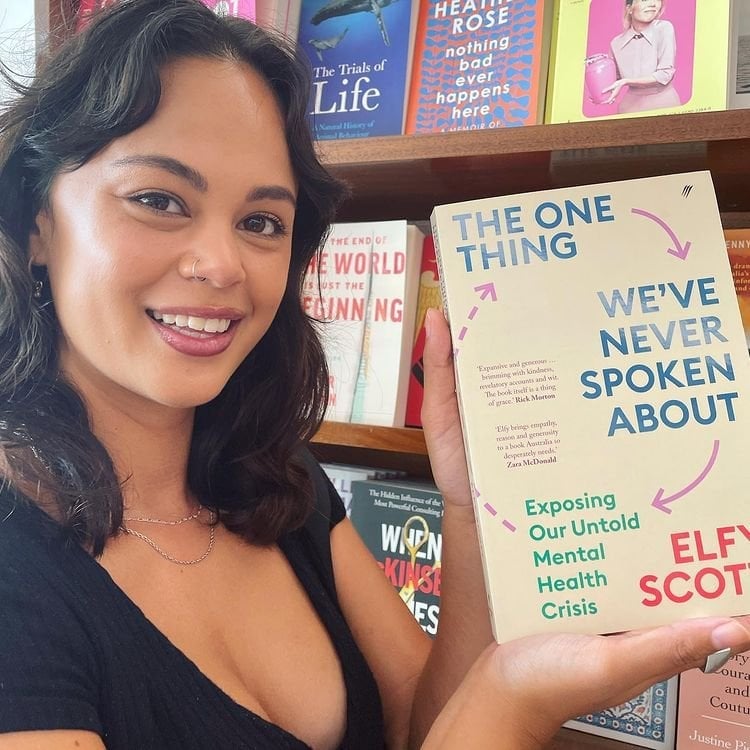
"It’s a medication for crazy people." Those words were spoken to Elfy Scott over a decade ago, but she can still remember hearing them. Clearly.
She was 13 at the time, and she and her best friend were engaged in a Harriet The Spy-style investigation into the prescription drugs she’d found while rifling through her parents' medicine cabinet. The drugs belonged to her mother.
"...a medication for crazy people," her friend said down the phone in a blunt summary of her research.
Watch: Supporting a loved one with anxiety. Post continues after video.
Elfy didn’t understand. Her mother wasn’t crazy. Eccentric, sure; even a little odd. But not crazy.
The Sydney teenager’s own online searching returned more words that confused her. 'Schizophrenia'. 'Psychosis'.
These were words rarely spoken in the Scott’s home, but as Elfy later came to appreciate, they were very much a part of her family’s story.
"I noticed my mum speaking to people who weren't there."
Elfy Scott, now 29, is the author of The One Thing We’ve Never Spoken About, a book that shines a light on the lived experiences of people with complex mental health conditions. People including her mother.
As Elfy learned as a teen, her mother has schizophrenia, a mental disorder that affects roughly one in every 100 Australians. It often begins in adolescence or early adulthood, and it typically involves hallucinations, delusions and disordered thinking.


Top Comments